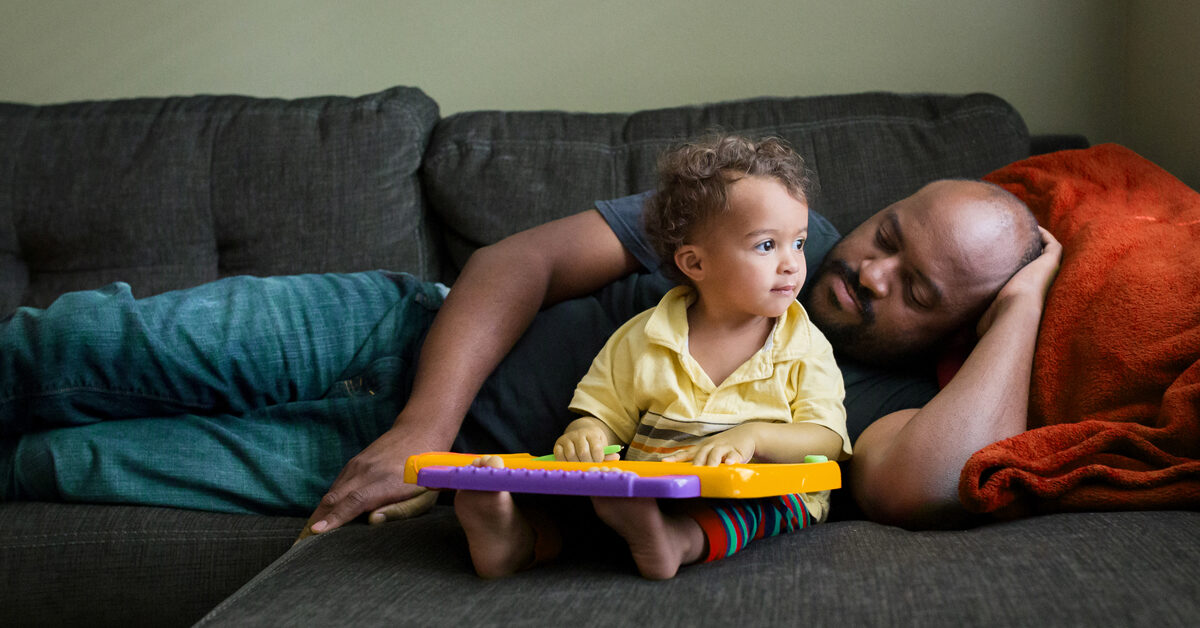LISTEN TO THIS ARTICLE:
A newly released study reveals that 2 in 3 working people with kids are experiencing parental burnout. We’ve talked about burnout before, in doctors and in teachers. The pandemic hit both those groups especially hard, and it didn’t go light on parents, either. In all these groups, burnout takes the form of chronic exhaustion in the face of constant stress with little to no recovery breaks. Working from home while also supporting their kids doing virtual schooling combined with financial struggles and COVID to create the perfect storm of stress.
Study details
Researchers at Ohio State University surveyed almost 1,300 American parents with children 18 and under living at home. Though the results of the study are just coming out now, it was actually completed just over a year ago, from mid January to late April, 2021. This period covered a wide range of COVID intensity, from the worst surge at the time to a major drop in infections leading in to the summer.
Burnout metrics
To evaluate how burned-out people were, the study designers created the “Working Parent Burnout Scale.” These people feel irritated and exhausted, as if they are just barely getting by. Work and child-rearing clash as people stress that they can’t do both as best they could. Many feel guilty about working and believe they are not parenting their children as well as they had in the past. Perhaps most worrisome is that this stress robs people of the joy they used to get from being with their kids.
Risk factors for parental burnout
Mothers bear the brunt of parental burnout. In the survey, they were 50% more likely to feel burned-out than dads. Burnout also strongly correlated with anxiety in parents and with increasing numbers of children. These parents were also more likely to feel depressed and drink more alcohol.
Having a child with mental health issues also posed a risk for parent burnout. The most common culprits included ADHD, anxiety disorders, and symptoms of depression. Even when kids didn’t have mental health diagnoses, many problematic behaviors still caused headaches for parents. These include teasing others, stealing, and not taking responsibility for their actions. These conflicts with other kids make it even harder when they ultimately return to school.
Even worse, when kids do return to school, there is the constant specter of school shootings. Helping kids with remote schooling while also working from home full time is exhausting. Sending them back to school gives parents a break, but then there is the constant worrying about whether they will be safe there. It’s a no-win situation.
Problems that parental burnout causes
As the parents in the survey correctly sensed, feeling burned-out can make it much harder to parent well. Burnout leads parents to struggle to discipline their kids appropriately. Many lose their temper more frequently, leading them to yell at, insult, or even hit their kids. Parents can feel irritated by their kids or their partners and wish they could somehow magically be free of their parental duties.
Burnout hits people physically, too. Their appetites change. They sleep worse and feel tired all the time. Unexpected aches and pains plague people as well. All this proves that even the body senses that working parents are burning the candle at both ends.
Tips and resources for managing parental burnout
1. Ask for help. There’s a saying that goes, “It takes a village to raise a child.” The COVID pandemic separated and isolated us in our homes, but as we creep back to a new normal, we can reach out to friends and extended family for help with child-rearing. As an exhausted parent, even a half hour break to oneself while a neighbor watches the kids can make a huge difference.
2. Parental communication. This ties in well with our first tip. The survey revealed that moms are much more burned-out than dads, a discrepancy that can lead to resentment. Parents need to work together to share the load and give each other regular rest breaks.
3. Treat mental health problems. If you or your child is struggling, get an evaluation from a mental health professional. Seeking help for a mental health problem can make all the difference in the level of stress a family has to endure.
4. Manage behavior issues. Without the structure of regular school for the past two years, many children are struggling with disruptive behaviors. Setting a schedule, especially if a child is still doing remote learning, and creating clear rules help a lot. Simple structure of daily activities and tasks prevents kids from feeling aimless and will promote better behavior patterns.

 Learn
Learn Stories
Stories ID Symptom
ID Symptom News
News Find Help
Find Help
 Share
Share
 Share
Share
 Share
Share
 Share
Share


